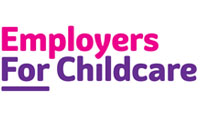How does the Government’s ‘Job Support Scheme’ impact financial support with childcare?
The introduction of the Job Support Scheme, which was due to start on 1 November, has now been delayed. This is because it is due to commence once the furlough scheme has closed, and as of 31 October 2020, the furlough scheme has been extended for a further month from 1 November (see our article here). In the meantime, we have received confirmation that parents who are in receipt of childcare support through Tax-Free Childcare, Universal Credit or Tax Credits, can retain their eligibility for this support even if they are on the Government’s Job Support Scheme and, as a result, are working fewer hours than usual and/or are in receipt of a lower income. Further detail is set out below.
What is the Job Support Scheme?
The Job Support Scheme is a new form of Government support, which will be introduced once the furlough scheme comes to an end, and will run to the end of April, to support “viable jobs” in businesses that are impacted by COVID-19. There are two versions of the scheme – one for businesses that are temporarily closed, and one for businesses that are open. Further information is available here.
Tax-Free Childcare
On 2 November, the Government confirmed that working parents who are on the Government’s coronavirus support schemes will still be eligible for childcare support even if their income falls below the minimum threshold requirement.
Eligible working parents who receive support through the Government’s new Job Support Scheme (JSS) and extended Self-Employed Income Support Scheme (SEISS) will continue to receive their childcare entitlements, including Tax-Free Childcare, even if their income levels fall below the threshold temporarily whilst on these schemes.
This was confirmed in a response to a Parliamentary Question at Westminster from Claire Hanna, MP.
Universal Credit and childcare costs
If you claim Universal Credit and are placed on the Job Support Scheme, you will be eligible to continue to have up to 85% (subject to the maximum limits) of your childcare costs reimbursed if:
- you have a contract of employment and are still being paid;
- childcare is being provided during that assessment period.
This was confirmed in a response to a Parliamentary Question at Westminster from Claire Hanna, MP and an Assembly Question at the Northern Ireland Assembly from Kellie Armstrong, MLA.
If you are no longer employed (eg through redundancy) then you will no longer be entitled to claim help towards your childcare costs after the assessment period following the assessment period in which you last worked. You should report a change such as this through your online journal.
Tax Credits and Childcare costs
If you have your working hours reduced because you have been placed on the Job Support Scheme, then Tax Credits will still treat you as working your normal hours, so long as you remain employed. While the legislation has not yet been published, this was confirmed in a response to a Parliamentary Question at Westminster from Claire Hanna, MP.
This means that you can also qualify for help towards childcare costs incurred during this time, however you should still inform Tax Credits of any changes in income or childcare costs in the normal way.
If you are not using childcare due to COVID-19, and temporarily have no childcare costs, contact HMRC’s Tax Credits Helpline and inform them of the change. Tax Credits will recalculate your entitlement based on this updated information. You can then contact HMRC when your Childcare costs resume as normal and Tax Credits will recalculate to reflect this. This change will not close your Tax Credits claim down and will not result in you having to move to Universal Credit. Note, you are not required to inform Tax Credits if the change in your childcare costs is less than £10 per week, and HMRC has confirmed that they will continue to pay childcare costs (at the usual rate of up to 70%) for a maximum of four weeks temporary absence due to COVID-19. For further information read our article here.
If you cease to be employed then you will no longer be entitled to claim help towards your childcare costs, however you can get the ‘Working Tax Credit run-on’. This is where you are treated as being in full-time paid work for the four weeks immediately after you stop work, or your hours are reduced. This means you continue to qualify for:
- Working Tax Credit for the four-week period
- All the elements you were previously getting for that period (eg the childcare element).
You must report the change in your circumstances to HMRC within one month. Note, you are still entitled to the childcare element during periods during which you are treated as being in work for Working Tax Credit purposes, for example, during the first 39 weeks of maternity leave or the four-week run-on period.
This is a complex and rapidly changing situation so we advise anyone with questions to seek independent advice on what is best for their family.
To contact Employers For Childcare’s Family Benefits Advice Service for further guidance in relation to Tax-Free Childcare, Universal Credit or Tax Credits, or for any other queries relating to childcare or financial support, contact the advice helpline on 028 9267 8200 or email hello@employersforchildcare.org.






